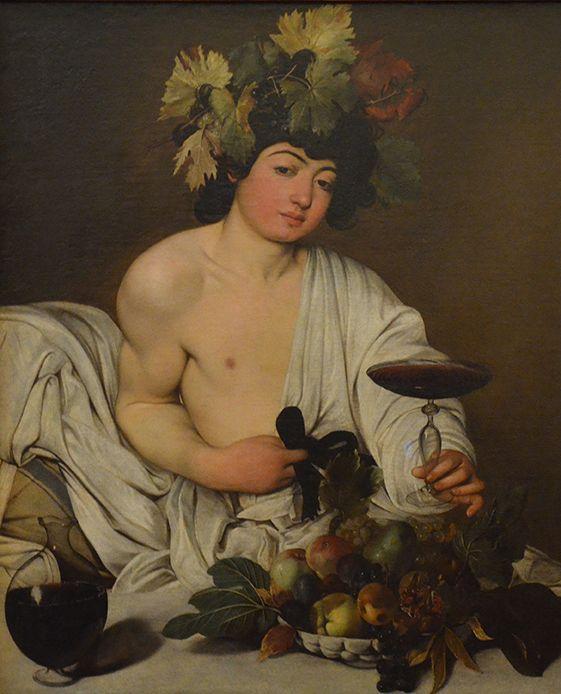A debate has erupted over the Uffizi’s decision to display an iconic painting by Caravaggio at one of the world’s biggest wine trade fairs.
Caravaggio’s Bacchus (around 1598) will be shown at the Vinitaly trade fair in Verona this spring as part of government efforts to promote the country’s huge wine industry. Art and heritage campaign group Mi Riconosci has described the plans as “absurd” and “unacceptable”, arguing that government rules prohibit the painting from leaving the museum.
In a deal between the Uffizi and Italy’s culture and agriculture ministries, Caravaggio’s Bacchus, which shows a boy reclining with vines in his hair, will be displayed in an as-yet unspecified location at the Vinitaly wine fair alongside Guido Reni’s Boy Bacchus (around 1630-1640), another work owned by the Florence museum. Running from 2 to 5 April and expected to draw around 4,000 wine producers, the fair is a flagship for Italy’s wine industry that generated €7.4bn in exports in 2022, making wine Italy’s biggest export last year. The Uffizi is being paid for the two loans.
However, Mi Riconosci argues in an article posted on its website that the loan does not conform with culture ministry guidelines published in 2008 outlining the circumstances in which state museum loans can take place, adding that the work appears in a “List of immovable works” published by the Uffizi in September 2022.
Last month, the National Archaeological Museum in Naples loaned two first-century bronzes to the fashion house Bottega Veneta for a catwalk in Milan, Mi Riconosci notes. “We are once again confronted with an embarrassing episode in which priceless pieces of our fragile heritage are being instrumentalised,” the group states.
Fabrizio Morettli, a member of the Uffizi’s scientific committee, expressed perplexity that the work was being loaned for a “commercial” rather than “intellectual” cause, while the Bari University archaeologist Giulio Volpe said he is “absolutely not against such operations, even if they may appear commercial,” Il Fatto Quotidiano reports. The Uffizi’s website, meanwhile, states that while “immovable” works cannot be exported internationally, it does not rule out domestic loans. The museum was contacted by The Art Newspaper and declined to comment.
The government has presented the wine fair as part of its objection to the European Commission’s decision in January to give Ireland the green light to display health warning labels on alcoholic beverage containers including bottles of wine. Unveiling plans for Vinitaly last week, agriculture minister Francesco Lollobrigida told Wine News the Uffizi paintings would help fight “counter information” as part of Italy’s “defence of wine”. “We want to […] show how wine has been an integral part of our culture for centuries,” he said.

























